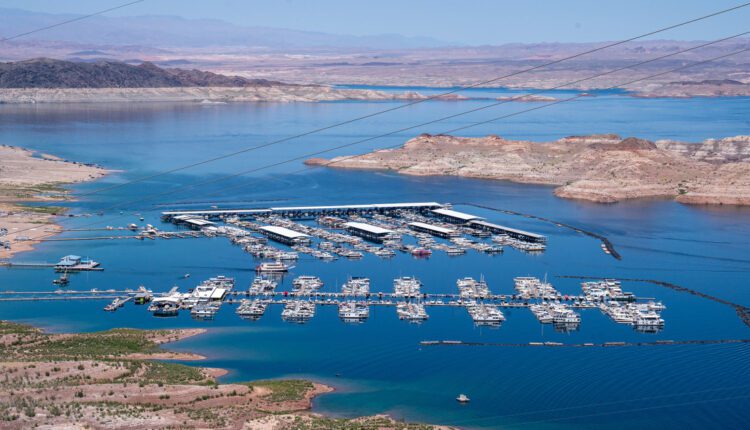
Colorado River agreement reached by three states to decrease water consumption
Colorado River Deal Reached by Seven States
The seven states that rely on the Colorado River for drinking water and power have reached a deal to keep the drought-stricken river flowing. Arizona, California, and Nevada have agreed to conserve at least 3 million acre-feet of water by 2026. The Biden administration helped broker the agreement, which could avert a near-term crisis and put the states on a more sustainable water-use trajectory. The deal could prevent the administration from enforcing cuts unilaterally if the states could not negotiate an agreement.
The Colorado River’s water is apportioned among seven states, 30 tribal nations, and Mexico. The river has been overallocated since its use was divided up in the 1922 Colorado River Compact and in subsequent agreements. The effects of climate change are squeezing the water supply even further. Solving the Colorado River’s long-term water supply imbalance remains a daunting task.
The new agreement would be in place through 2026 once analyzed and officially approved by the Bureau of Reclamation, which operates the Lake Mead and Lake Powell dams. As part of the agreement, the administration would use funding from the Inflation Reduction Act to compensate some farmers and other water users who temporarily agree to cuts. The federal dollars from the Inflation Reduction Act will compensate for more than three-quarters of the water conserved in the deal.
The governors of California, Arizona, and Nevada cheered the agreement. Negotiators for the four upper basin states – Colorado, New Mexico, Utah, and Wyoming – have said they support the decision to submit the new plan for the federal government’s consideration and to avoid emergency measures imposed by the federal government. In a letter to the Bureau of Reclamation, the governors of California, Arizona, and Nevada said they hoped the new agreement would allow negotiations to “pivot to discussions on post-2026 operations that will address the impacts of climate change on system water supply availability and the existing overallocation of water.”
The deal calls for less conservation than some scientists say is required to stabilize the river after more than a two-decade drought. The deal could avert a political predicament for the Biden administration, but it prevents the administration from enforcing cuts unilaterally if the states could not negotiate an agreement.
Conclusion
The Colorado River deal reached by the seven states that rely on it for drinking water and power is a significant achievement. The deal could avert a near-term crisis and put the states on a more sustainable water-use trajectory. Solving the Colorado River’s long-term water supply imbalance remains daunting, but the new agreement will be in place through 2026. The governors of California, Arizona, and Nevada cheered the agreement, and negotiators for the four upper basin states have said they support the decision to submit the new plan for the federal government’s consideration and to avoid emergency measures imposed by the federal government. This deal could have long-lasting positive effects and is an important step towards a more sustainable future.
Original Story at www.nbcnews.com – 2023-05-22 21:38:17
